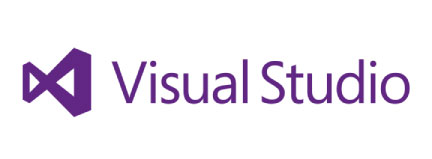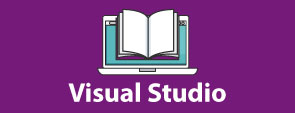
Objetivos
- Explain core programming fundamentals such as computer storage and processing.
- Explain computer number systems such as binary.
- Create and use variables and constants in programs.
- Explain how to create and use functions in a program.
- Create and use decisions structures in a computer program.
- Create and use repetition (loops) in a computer program.
- Explain pseudocode and its role in programming.
- Explain the basic computer data structures such as arrays, lists, stacks, and queues.
- Implement object-oriented programming concepts.
- Create and use classes in a computer program.
- Implement encapsulation, inheritance, and polymorphism.
- Describe the base class library (BCL) in the .NET Framework.
- Explain the application security concepts.
- Implement simple I/O in a computer program.
- Identify application errors and explain how to debug an application and handle errors.
- Identify the performance considerations for applications.
- Profesor: José René Fuentes Cortez
- Profesor: Profesor NI
- Profesor: Rafael Quiroz

In this course, the professional web developers will learn to develop advanced ASP.NET Core MVC applications using .NET Core tools and technologies. The focus will be on coding activities that enhance the performance and scalability of the Web site application. This course will also prepare the student for exam 70-486.

- Profesor: Julio García Cano
- Profesor: Profesor NI

In this course, the professional web developers will learn to develop advanced ASP.NET Core MVC applications using .NET Core tools and technologies. The focus will be on coding activities that enhance the performance and scalability of the Web site application. This course will also prepare the student for exam 70-486.

- Profesor: José René Fuentes Cortez
- Profesor: Julio García Cano
- Profesor: Profesor NI

This training course teaches developers the programming skills that are required for developers to create Windows applications using the Visual C# language. During the course review the basics of Visual C# program structure, language syntax, and implementation details, and then consolidate their knowledge throughout the week as they build an application that incorporates several features of the .NET Framework 4.7.
After completing this course, students will be able to:
- Describe the core syntax and features of Visual C#.
- Create methods, handle exceptions, and describe the monitoring requirements of large-scale applications.
- Implement the basic structure and essential elements of a typical desktop application.
- Create classes, define and implement interfaces, and create and use generic collections.
- Use inheritance to create a class hierarchy and to extend a .NET Framework class.
- Read and write data by using file input/output and streams, and serialize and deserialize data in different formats.
- Create and use an entity data model for accessing a database and use LINQ to query data.
- Access and query remote data by using the types in the System.Net namespace and WCF Data Services.
- Build a graphical user interface by using XAML.
- Improve the throughput and response time of applications by using tasks and asynchronous operations.
- Integrate unmanaged libraries and dynamic components into a Visual C# application.
- Examine the metadata of types by using reflection, create and use custom attributes, generate code at runtime, and manage assembly versions.
- Encrypt and decrypt data by using symmetric and asymmetric encryption.
- Profesor: Julio García Cano
- Profesor: Profesor NI